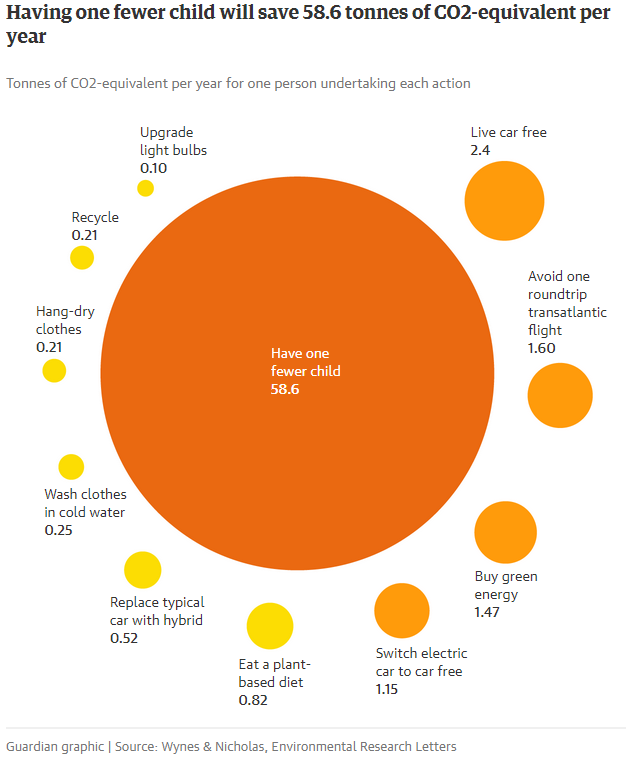Eating the rich is by far the most eco-friendly approach as it can dramatically reduce greenhouse gas emissions.
Jeff bezos probably tastes like drywall and hooker spit.
Compost them first then you can eat the rich while also being vegan = Billions and billions of carbons.
Hooker spit. Lol. Imagine Jeff Bezos paying you hundreds of thousands to spit on him while trying to hide the fact that, you would gladly do it for free.
I vehemently disagree with this statement.
We need to compost the rich and use that as a soil amendment to grow heirloom vegetables.
One Elon musk can feed a family for a year.
One farm fertilized with musk mulch can feed a city block!
Ok, are actively working on this? Is your work on it so horrendously demanding of all your attention of every single day, that you couldn’t ALSO go vegan, or vegetarian, or just eat less meat? Eat the rich is just a fun day dream and a lazy excuse to not do what you can (like going vegan).
Eating the rich would also vastly reduce racism, sexism, classism, and worker exploitation. Can I therefore ignore my negligible personal impact, and keep being racist, sexist, classist, and buy only the cheapest clothes crafted by the most exploited third world toddlers?
You sound like you are fun at parties. This was obviously a joke. Also, Why can’t we do both?
The richest countries have the lowest population growth. Eating the poor would reduce the total footprint much more efficiently. Having less people in the planet is the only real sustainable way to ensure everyone can live comfortably and eat whatever the heck they want.
Spoken like a true conservative, I agree with you, we also need to reduce tax for the rich and raise the retirement age to at least 97 years otherwise the economy will crumble.
Yeah, twisting everything into class conflit babble is the balanced way to think.
Yes, it is!
Found the ecofascist.
This crucially important caveat they snuck in there:
“Prof Scarborough said: “Cherry-picking data on high-impact, plant-based food or low-impact meat can obscure the clear relationship between animal-based foods and the environment.”
…which is an interesting way of saying that lines get blurry depending on the type of meat diet people had and/or the quantity vs the type of plant-based diet people had.
Takeaway from the article shouldn’t be meat=bad and vegan=good - the takeaway should be that meat can be an environmentally responsible part of a reasonable diet if done right and that it’s also possible for vegan diets to be more environmentally irresponsible.
That’s both absolutely true and a massive distraction from the point. An environmentally friendly diet that includes meat is going to involve sustainable hunting not factory farming. In comparison an environmentally friendly vegan diet is staples of meat replacements and not trying to get fancy with it. It’s shit like beans instead of meat, tofu and tempeh when you feel fancy. It means rejecting substitutes that are too environmentally costly such as agave nectar as a sweetener (you should probably use beet or cane based sweetener instead).
So in short eat vegan like a poor vegan not like a rich person who thinks veganism is trendy
“So in short eat vegan like a poor vegan not like a rich person who thinks veganism is trendy”
But in the context of this conversation, wouldn’t eating like a poor vegan rely heavily on buying products that also have a heavy impact on the environment?
You would have to buy cheaper products which come from mass produced farms that use TONS and TONS of water! And generate TONS and TONS of carbon emissions during production of those products.
To be vegan AND
advocate for conservation(you can advocate for something no matter your own behavior. That’s the wrong word to use) to claim that your lifestyle is better for the environment than your non-vegan counterparts, you have to have money.I ain’t never heard of a gram of black beans with more co2 emissions than a gram of beef
If I source my beef or lamb from low-impact producers, could they have a lower footprint than plant-based alternatives? The evidence suggests, no: plant-based foods emit fewer greenhouse gases than meat and dairy, regardless of how they are produced.
[…]
Plant-based protein sources – tofu, beans, peas and nuts – have the lowest carbon footprint. This is certainly true when you compare average emissions. But it’s still true when you compare the extremes: there’s not much overlap in emissions between the worst producers of plant proteins, and the best producers of meat and dairy.
https://ourworldindata.org/less-meat-or-sustainable-meat
Plant-based foods have a significantly smaller footprint on the environment than animal-based foods. Even the least sustainable vegetables and cereals cause less environmental harm than the lowest impact meat and dairy products [9].
Yes, I think it’s vital to avoid thinking in absolutes over carbon footprints if we are to make real progress. We can argue endlessly over the “necessity” of consuming meat, but that becomes a distraction. Many things are not “necessary”, but most people are not realistically going to live in caves wearing carbon neutral hair shirts.
We need to continue increasing transparency on the impact of different animal products, so consumers can make informed choices. While also accepting they may not always be perfect.
The only way to stop people from eating meat is to make a vegan food that tastes better than a bacon cheeseburger.
yes. when you look at charts and such. Someone who exclusively ate meat for some reason who moved to chicken would have a greater impact than someone who exclusively ate chicken and went vegan. Sheep did not show up so well either so im guessing ruminants in general are not going to be so hot. Anyway I would encourage folk to keep it in mind and do what they can. I realize go vegan results in many. Well eff it all then but man just avoiding beef is big impact.
Someone who exclusively ate meat for some reason who moved to chicken would have a greater impact than someone who exclusively ate chicken and went vegan.
But that first person could have an even bigger environmental impact by becoming Vegan instead of only eating chicken.
yes but if you actually convince someone who eats just chicken to go vegan it will have less of an effect if you actually convince a big red meat eater to limit to chicken.
Watch as I solve this trolley problem with the Ole dual track drifting solution. They should all go vegan. You should, too.
you convinced me. don’t try something because its just not good enough. stay the course. good convincing.
Thank you for helping me to convince everyone else just how pathetic you sound.
Name calling derails conversations faster than drifting trains. Put yourself in their shoes and maybe just agree to disagree.
I ate a double cheeseburger for dinner and it was better than any vegetable I’ve ever eaten.
You’d have a bigger impact by convincing 30% of the population to only have chicken, vs convincing 15% to go vegan.
Sure, and if we could only do one, we should choose accordingly. We can do both, simultanously. Exactly like how we don’t have to choose between eating less meat and driving less cars.
Or an even bigger impact by having fewer children.
This is true, however, not realistic in some parts of the world. For instance, in the United States, Republicans have waged a war on bodily autonomy, which includes the Roe v. Wade ruling and states creating departments to hunt down citizens who go out of state to have abortions. There are also countries where sex education is not prohibited. So, take these things into consideration while thinking about potential solutions. That being said, you are right, and you can do something about it by voting, if you are able to, wherever you live.
Do you remember a source for that info? Or at least suggestions? I’m interested to read into it, but I’m not really sure what to even google for that
Our World in Data has a decent article about it: https://ourworldindata.org/food-choice-vs-eating-local
So nice to read a sensible comment in a sea of crazy talk.
Yeah I barely eat beef anymore, mostly chicken. I don’t want to give up on eating animals, especially since I’m trying to get into shape right now and it would be hard to eat healthy and get enough protein to build up muscle mass.
Do whatever you want but just so you know Arnold Schwarzenegger is a vegetarian now. It’s much less difficult than people think to get enough protein to bulk up without meat unless you’re doing hardcore body building. Beans and rice is a high protein dinner. Peanut butter is amazing for bulking.
80% vegan. He still eats fish, eggs and chicken. https://www.insider.com/how-arnold-schwarzenegger-gets-protein-on-mostly-vegan-diet-2023-6
80% plant-based diet. Veganism is an ethical stance, not a trendy diet.
I keep half a dozen of my own chickens in my backyard…which means about half my daily protein intake comes from eggs (which is a great source, btw). And my chickens free-range in my backyard and largely take care of and feed themselves (supplemented with chicken feed but they get most of their daily intake from the bugs/plants in the yard). I still do eat meat almost daily, but the quantities are a lot less than what I was doing a decade ago, and beef is less than a once-a-week thing for me. Like you, I’m trying to get back in shape and watching macronutrients (like protein) very carefully and trying to hit certain daily minimum numbers.
The best-treated slaves are still slaves at the end of the day.
The real takeaway should be that the Independent is complete garbage
A couple of people have spoken to me before about wanting to cut back on, or completely cut meat from their diets, but didn’t know where to start. If anyone reading this feels the same way, here’s some fairly basic recipies that I usually recommend (Bosh’s tofu curry is straight up one of the best currys i’ve ever had - even my non-vegan family members love it)
Written:
- ‘Butter’ Tofu Curry (Written Recipe)
- Lentil Soup (Written Recipe)
- Caribbean Stew (Written Recipe)
- Sweet Potato & Cauliflower Curry Pies (Written Recipe)
- Afghan Kidney Bean Curry (Written Recipe)
Videos:
- 5 Minute Vegan Pasta Sauces (YT / Invidious)
- Ultimate Vegan Chilli (YT / Invidious)
- Enchiladas Verdes (YT / Invidious)
- Ultimate Plant-Based Fried Chicken (YT / Invidious)
- Mac & Cheez (YT / Invidious)
- Wicked Lasagna (YT / Invidious)
- Smash Tacos (YT / Invidious)
Tofu is also super versatile and is pretty climate-friendly. there’s a bazillion different ways to do tofu, but simply seasoning and pan frying some extra/super firm tofu (like you do with chicken) with some peppers and onions, for fajitas, is an easy way to introduce yourself. Here’s a little guide for tofu newbies: A Guide to Cooking Tofu for Beginners - The Kitchn. If you wanna level up your tofu game with some marinades here’s six.
Lentils and beans are also super planet friendly, super cheap, and super versatile! You’ll be able to find recipies all over that are based around lentils and beans so feel free to do a quick internet search.
Sorry for the huge, intimidating wall of text! I do hope someone interested in cutting back on meat found this useful though :)
In this thread: Shit loads of people who will say they care about the climate crisis on one day, then say they don’t care about the 18.5% of global carbon emissions that the meat industry causes the next day because they can’t get over the decade worth of anti-veganism jokes and memes that they’ve constantly repeated uncritically.
Individual habits MUST be changed to solve this part of the problem, there is literally no way around that. Getting triggered and writing screeds because you’ve spent decades getting caught up in hate over food choices won’t stop the planet burning.
Tax meat, subsidize healthy meat alternatives.
Oh look, another article pointing the finger at the meager consumption habits of citizens and completely ignoring the massive ocean of CO2 production by large companies.
Don’t people get tired of seeing this same argument being made? The amount of carbon produced by barges carrying cargo over the Atlantic so far greatly exceeds the consumption of many millions of people every single day but I’m supposed to feel guilty for eating a piece of steak today instead of some semi-edible “impossible meat” bug protein?
ETA: Nice, my first blowup since leaving reddit. Very refreshing to see some people arguing passionately. I appreciate the vigor and the quality of argumentation, everybody. The quality of discourse here is so much better than on reddit.
I’m willing to admit the “semi edible impossible meat bug protein” gamut was a bit tongue in cheek, but I recognize how it can sound genuine. I do think Impossible Meat is disgusting, but that’s neither here nor there.
I eat plenty of plant matter and I regularly forage in the local forests to learn about edible plants. But I’m not going to stop enjoying steak just because it might put a bit more CO2 (why do people keep writing it as C02 online?) into the atmosphere. If removing subsidies and putting more pressure on the meat industry to be less wasteful, less environmentally impactful and more ethical towards animals causes steak to rise to $40/lb as some here have stated I’ll gladly pay.
FWIW, I get my steak from local farms that are free range and grass fed. Grass feeding is healthier for the cow than the typical grain, it produces less CO2 and the steak is better quality. Plus the cows are better taken care of. Again, thanks for the great messages (generally).
This has been known for eons, hasn’t it?
Haven’t we known this for a long time? With good peer reviewed studies?
And the type of meat changes the math significantly. Beef is notoriously inefficient and produces an insane amount of GHG emissions compared to more efficient meats like chicken, pork, and farmed fish.
Having fewer children is the number one thing you can do. And it’s not even close.

I mean, do the other things anyway if you like. They can’t hurt. They may even save you money. But they won’t save an overpopulated planet.
Better title “Eating meat creates four times more greenhouse gases than not eating meat”.
Every time I read about meat and greenhouse gases I feel the need to explain the natural carbon circle. A cow does not produce carbon. It takes carbon from plants and releases it to the atmosphere. Then plants retake that carbon.
Humans are adding carbon to the atmosphere by digging out stored carbon from the ground and bring it to the atmosphere.
So we have to fix the part where we bring additional carbon to the atmosphere. But yes, there are other environmental issues with cattle if you read the ops article.
The Biogenic Carbon Cycle and Cattle: https://clear.ucdavis.edu/explainers/biogenic-carbon-cycle-and-cattle
It’s not really suprising, is it? Just take two people and give them the same basics, but swap everything non vegan with the stuff those animals got to eat for one of them. Not only did he save the middle man to save on emissions, he also ended up with way more food. So you could save a lot more emissions by cutting down the vegan pile to the same amount of calories.
Replacement products bring down the comparison, but making stuff out of soy will always be more efficient than feeding soy to animals and then eating those. So with otherwise equal lifestyles a vegan will always produce less emissions.
There sure is a lot of effort being made to obscure the fact that most greenhouse gasses come from industrial sources.
deleted by creator
I’m sure shipping vast quantities of almonds and almond milk from places like California to the rest of the world produces almost no greenhouse gases /s
Not to talk about the ecological damage it does to California due to the immense water consumption.
Roughly half the amount of cow’s milk.
https://cdn.statcdn.com/Infographic/images/normal/22659.jpeg
Yes that neglects the transport though. Cow milk can PE produced locally almost everywhere. Cow milk I buy here was produced maybe 10km away from me. Almond milk was transported 5000+ km.
Per person or current polution rates? If this is a 1 to 10 comparison, having twice as much gasses produced doesn’t mean much.
The chart says those values are what it takes to produce one liter of each milk.
So we are talking about producing roughly 580 calories of almond milk vs producing 2400 calories of cow milk.
So in terms of calories/pollution rate, we are talking about a scale of 1:2 in favor of cow milk efficiency.
Meaning in terms of keeping people fed as a rate of efficiency in pollution, cow milk is twice as efficient.
Does that math add up? feel free to check me.
Edit: doubled the calories in an unsweetened silk almond milk for almond milk calorie count
Used a local brand of whole milk that based on a short Google search seems pretty standard.
Nutrition isn’t just about filling up some hunger bar counted in calories, otherwise we should just grow sugar everywhere and diet coke would be idiotic. Cow milk has more calcium naturally (it gets added to the alternatives), more protein (soy milk comes close, almond milk does not), but more saturated fat (the others have healthier fats)
Sounds about right, though I’m not sure if I agree with the direct comparison of calories. Milk probably isn’t going to be a major source of a person’s calories (at least it wasn’t a major source of calories for me before I went vegan), and it seems unlikely that someone will drink 4 cups of almond milk to replace each cup of dairy milk they would have drank in order to maintain the same calorie intake from milk. Comparing by volume produced makes more sense to me, since someone switching milks seems more likely to use them as a 1 to 1 replacement volume wise, e.g. someone adding 1 cup of almond milk to cereal vs. adding 1 cup of dairy to cereal.
Just wrote a comment with bad math.
Almond milk and cow milk are effectively the same in terms of cal/pollution rate.
Cow milk produces 4x as much pollution, but also produces 4x as many calories.
Which doesn’t really matter because people don’t put milk in their coffee to add x amounts of calories. So in almost all cases, they will use the same amount in volume/weight.
And a lot of other plant based milk alternatives have an even lower environmental impact, the difference between your average milk and milk alternative will be even bigger.
Nah Corporations and industries creates 1000x more greenhouse gases than meat and agriculture.














